
Focusing on the harmonic interaction, delicate nuances and harmonic functionality of closely related tones, Chicago instrumentalists Zachary Good on clarinet and Ben Roidl-Ward on bassoon recorded these six works of acoustical and phenomenological events using the interplay between coinciding clarinet and bassoon notes, creating illusory and haunting tonal works.
In Stock
Quantity in Basket: None
Log In to use our Wish List
Shipping Weight: 3.00 units
Sample The Album:
Zachary Good-clarinet
Ben Roidl-Ward-bassoon
Click an artist name above to see in-stock items for that artist.
UPC: 759952113855
Label: Carrier Records
Catalog ID: 058
Squidco Product Code: 30126
Format: CD
Condition: New
Released: 2021
Country: USA
Packaging: Cardboard sleeve, sealed
Recorded at The Pridmore in Chicago, Illinois, on June 7th, 2020, by the artists.
"Arb is an album of original works for clarinet and bassoon performed and collaboratively composed by Zachary Good and Ben Roidl-Ward. Each track features interplay between coinciding clarinet and bassoon multiphonics. While these sounds are often regarded as unstable and harsh, Zach and Ben focus on their delicate nuances and harmonic functionality. Emerging from these multiphonics, independently and especially in combination, are acoustical and phenomenological experiences that create the illusion that more than two people are playing."-Carrier
"Zachary Good and Ben Roidl-Ward are two young instrumentalists based in Chicago. Both are interested both in expanding the repertoire of their instruments (Good plays clarinets and Baroque recorders, Roidl-Ward plays the bassoon) and extending the possibilities of the instruments. During lockdown last year, they recorded an album in their Chicago apartment.
arb, on Carrier Records, is a disc of original works for clarinet and bassoon, collaboratively composed by Zachary Good and Ben Roidl-Ward.
There are six tracks on the disc, 'Fairchild', '2pm front room', 'Guby', 'Rege', 'Prid', and 'Arb' which seem to tantalisingly hint at subjects behind the music, but the pieces themselves are resolutely abstract. Each piece features extensive use of multiphonics, with the players relishing the interplay between the two instruments.
Pitch and rhythm are almost unimportant here, the two performers place individual notes in the air and the music is often slow moving. It is the multiphonics that are the interest, the fascinating tonal and textural changes that these bring about in the sound. The result is highly textural; in convential classical music such multiphonics would be seen as disturbances but here the two performers concentrate so hard on the acoustical effects that they become the point of music. At times, it seems as if there are more than two performers, but the album isn't about acoustical tricks, but exploring the edges of what is possible on a reeded wind instrument.
The album's name, arb, requires some explanation. 'arb' is the nickname of the Oberlin Arboretum which is part of Oberlin College and Conservatory where both Good and Roidl-Ward studied (what their press release refers to as 'a magical time'). Whilst at college the two formed a duo, Arboretum, dedicated to creating new music for clarinet and bassoon. And the names of the individual pieces contain similar such references, 'Prid' refers the name of the apartment block they were living in during Lockdown, The Pridmore, whilst 'Guby' refers to Good's 1992 Buick Regal!
There is something delightfully nerdy in this disc's focus on a single issue, multiphonics, the single minded exploration of what could be seen as rather a limited aspect of wind instrument performance. But in this sheer focus, the two reveal some amazing detail. And the disc is also about the wider issue of friendship, the two have known each other and performed together for ten years, so the disc is a celebration both of friendship and of shared interest.
The music requires quite a degree of adjustment in the listener, at first the sounds can seem insistent and jarring, but the performers sheer concentration makes you listen in detail. The different combinations of sounds prove to contain rich details which can prove surprising. This is a brave and challenging disc, not everyone will want to listen to nearly 30 minutes of multiphonics, but do give it a go."-Robert Hugill
Get additional information at Planet Hugill
Artist Biographies
• Show Bio for Zachary Good "Zachary Good is a Chicago-based instrumentalist (clarinets and Baroque recorders), improviser, and performer. He approaches music making with a variety of perspectives, ranging from historically-informed to experimental practices, while working across a spectrum of genres and techniques. Zachary is clarinetist of the GRAMMY-award winning sextet Eighth Blackbird, a founding Co-Artistic Director of the performance collective Mocrep, and one-third of the clarinet/percussion/cello trio ZRL. He has frequently performed with International Contemporary Ensemble, Music of the Baroque Chicago, Manual Cinema, and Ensemble Dal Niente. He has been a featured soloist with International Contemporary Ensemble, DePaul University's Ensemble 20+, and the Chicago Symphony Orchestra’s All Access Chamber Series. His discography includes releases on Carrier Records, No Index, Homeroom, Parlour Tapes+, ears&eyes, and more. Zachary loves teaching and mentoring musicians and composers. He is currently a middle school band director at the Chicago Waldorf School. Alongside the musicians of Eighth Blackbird, he was Visiting Instructor at the University of Richmond during the 2019–20 academic year. In 2018, Zachary worked closely with cellist YoYo Ma to mentor young musicians at the second annual Youth Music Culture Guangdong Festival in Guangzhou, China. As a Fellow and clarinetist in the Civic Orchestra of Chicago from 2014–2016, he helped conceive and establish the Orchestra's New Music Workshop. He has presented masterclasses on the clarinet, bass clarinet, contrabass clarinet, chamber music, and contemporary performance techniques at institutions across the US, including Portland State University, Gettysburg College, University of North Carolina at Greensboro, the Civic Orchestra of Chicago, Northwestern University, University of Oklahoma, and University of Richmond. Born in Pittsburgh, Zachary is currently a doctoral student at Northwestern University’s Bienen School of Music. He holds degrees from Oberlin Conservatory of Music and DePaul University’s School of Music. Zachary has participated in fellowships with the Civic Orchestra of Chicago and the Aspen Contemporary Music program. His body of research explores the phenomena and functionality of dyad multiphonics on the soprano clarinet. Projects: ^ Hide Bio for Zachary Good • Show Bio for Ben Roidl-Ward "Ben Roidl-Ward is a bassoonist and improviser based in Chicago. His dedication to working with and advocating for composers of his generation has led him to commission and premiere numerous solo and chamber works featuring the bassoon with the goal of broadening the repertoire and expanding the possibilities of the instrument. Ben has appeared as a soloist with the Seattle Symphony and the Northwestern and Oberlin Contemporary Music Ensembles, along with several regional orchestras throughout the United States. He has performed with the International Contemporary Ensemble, Ensemble Dal Niente, the Spektral Quartet, the Chicago Symphony, and the New York Philharmonic. His festival appearances include the Mostly Mozart, Ravinia, Lucerne, Tanglewood, Spoleto, and Banff Festivals. A 2018 Luminarts Fellow in Classical Music, Ben was recently named one of five finalists for the International Double Reed Society's 2020 Gillet-Fox Competition. He is currently the second bassoonist of the Illinois Symphony and was a member of the Civic Orchestra of Chicago for three years. Ben serves on the faculties of Carthage College, the Music Institute of Chicago, the People's Music School, the Merit School of Music, and the North Carolina Governor's School. He is a doctoral candidate at Northwestern University, where he studied with David McGill. Previous teachers include Ben Kamins at Rice University, George Sakakeeny at the Oberlin Conservatory, and Francine Peterson in the Seattle Area." ^ Hide Bio for Ben Roidl-Ward
Mocrep
ZRL
Eighth Blackbird
Frequent collaborators:
Manual Cinema
International Contemporary Ensemble
Ensemble Dal Niente
Civic Orchestra of Chicago"
7/15/2025
Have a better biography or biography source? Please Contact Us so that we can update this biography.
7/15/2025
Have a better biography or biography source? Please Contact Us so that we can update this biography.
Track Listing:
1. Fairchild 7:24
2. 2pm Front Room 2:57
3. Guby 4:47
4. Rege 2:46
5. Prid 3:25
6. Arb 7:47
Compositional Forms
Recordings by or featuring Reed & Wind Players
Duo Recordings
Chicago Jazz & Improvisation
New in Compositional Music
Search for other titles on the label:
Carrier Records.


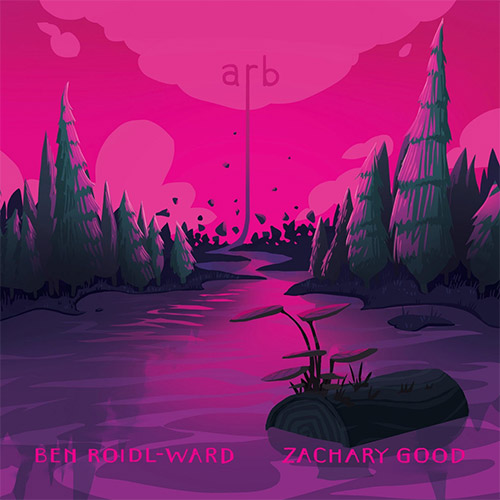

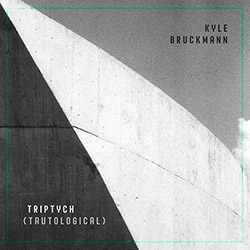

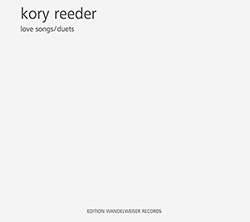
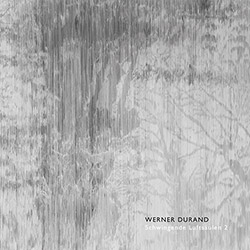
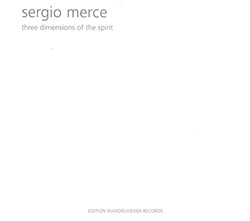

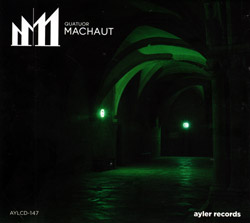


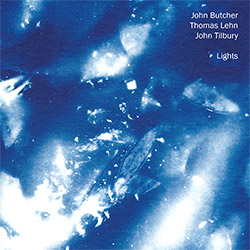


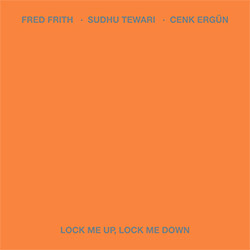



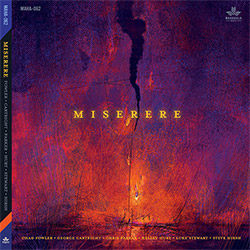

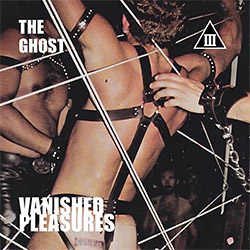
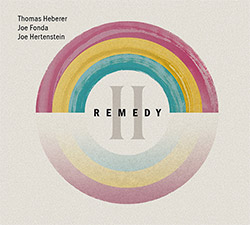
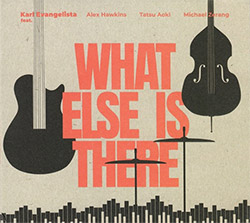
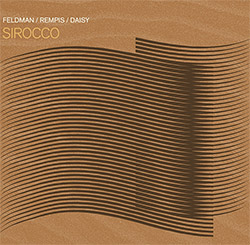
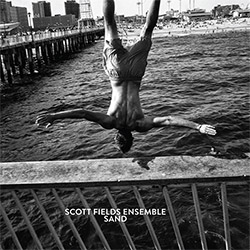
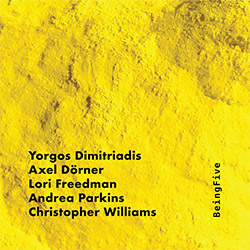
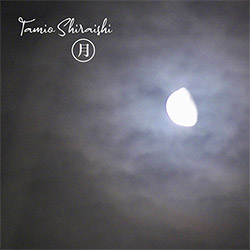




![BlueRing Improvisers: Materia [2 CDs]](https://www.teuthida.com/productImages/misc4/36513.jpg)








![Wheelhouse (Rempis / Adasiewicz / McBride): House And Home [VINYL]](https://www.teuthida.com/productImages/misc4/36462.jpg)
![+DOG+: The Light Of Our Lives [2 CDs]](https://www.teuthida.com/productImages/misc4/36009.jpg)


![Parker, Evan / Jean-Marc Foussat: Insolence [VINYL]](https://www.teuthida.com/productImages/misc4/36398.jpg)










![Deupree, Jerome / Sylvie Courvoisier / Lester St. Louis / Joe Morris: Canyon [2 CDs]](https://www.teuthida.com/productImages/misc4/36404.jpg)



![Eventless Plot | Haarvol: The Subliminal Paths [CASSETTE + DOWNLOAD]](https://www.teuthida.com/productImages/misc4/36232.jpg)










![Eventless Plot | Francesco Covarino: Methexis [CASSETTE + DOWNLOAD]](https://www.teuthida.com/productImages/misc4/36231.jpg)



![Das B (Mazen Kerbaj / Mike Majkowski / Magda Mayas / Tony Buck): Love [VINYL]](https://www.teuthida.com/productImages/misc4/36329.jpg)


![Eternities: Rides Again [CASSETTE]](https://www.teuthida.com/productImages/misc4/36247.jpg)
![Lopez, Francisco: Untitled (2021-2022) [2 CDs]](https://www.teuthida.com/productImages/misc4/36438.jpg)






![Money : Money 2 [2 CDs]](https://www.teuthida.com/productImages/misc4/35894.jpg)




![Klinga, Erik: Elusive Shimmer [VINYL]](https://www.teuthida.com/productImages/misc4/36258.jpg)
![CHANGES TO blind (Phil Zampino): Volume 9 - I Wave on a Fine Vile Mist [CD + DOWNLOAD]](https://www.teuthida.com/productImages/misc4/36061.jpg)

![Wallmart / Rubbish: Asset Protection [split CD]](https://www.teuthida.com/productImages/misc4/35900.jpg)


![+Dog+: The Family Music Book Vol. 5 [2 CDs]](https://www.teuthida.com/productImages/misc4/35897.jpg)
![Kuvveti, Deli : Kuslar Soyledi [CASSETTE w/ DOWNLOAD]](https://www.teuthida.com/productImages/misc4/36107.jpg)

![Brown, Dan / Dan Reynolds: Live At The Grange Hall [unauthorized][CASSETTE]](https://www.teuthida.com/productImages/misc4/36245.jpg)








![Palestine, Charlemagne / Seppe Gebruers: Beyondddddd The Notessssss [VINYL]](https://www.teuthida.com/productImages/misc4/36206.jpg)
![Palestine, Charlemagne / Seppe Gebruers: Beyondddddd The Notessssss [NEON GREEN VINYL]](https://www.teuthida.com/productImages/misc4/36207.jpg)

![Laubrock, Ingrid: Purposing The Air [2 CDs]](https://www.teuthida.com/productImages/misc4/35639.jpg)

![Yoko, Ono / The Great Learning Orchestra: Selected Recordings From Grapefruit [2 CDs]](https://www.teuthida.com/productImages/misc4/35841.jpg)









![Zorn, John / JACK Quartet: The Complete String Quartets [2 CDs]](https://www.teuthida.com/productImages/misc4/35609.jpg)

![Lonsdale, Eden: Dawnings [2 CDs]](https://www.teuthida.com/productImages/misc4/35480.jpg)



![Sorry For Laughing (G. Whitlow / M. Bates / Dave-Id / E. Ka-Spel): Rain Flowers [2 CDS]](https://www.teuthida.com/productImages/misc4/35985.jpg)

![Rolando, Tommaso / Andy Moor : Biscotti [CASSETTE w/ DOWNLOADS]](https://www.teuthida.com/productImages/misc4/36106.jpg)


![Electric Bird Noise / Derek Roddy: 8-10-22 [CD EP]](https://www.teuthida.com/productImages/misc4/35970.jpg)








![Elephant9 : Mythical River [VINYL]](https://www.teuthida.com/productImages/misc4/34624.jpg)



![Elephant9 with Terje Rypdal: Catching Fire [VINYL 2 LPs]](https://www.teuthida.com/productImages/misc4/35355.jpg)
![Deerlady (Obomsawin, Mali / Magdalena Abrego): Greatest Hits [VINYL]](https://www.teuthida.com/productImages/misc4/34876.jpg)







![Surplus 1980: Illusion of Consistency [CD]](https://www.teuthida.com/productImages/misc4/35069.jpg)
![Staiano, Moe: Away Towards the Light [VINYL + DOWNLOAD]](https://www.teuthida.com/productImages/misc4/35037.jpg)
![Coley, Byron: Dating Tips for Touring Bands [VINYL]](https://www.teuthida.com/productImages/misc4/17906.jpg)

![Lost Kisses: My Life is Sad & Funny [DVD]](https://www.teuthida.com/productImages/misc4/lostKissesDVD.jpg)